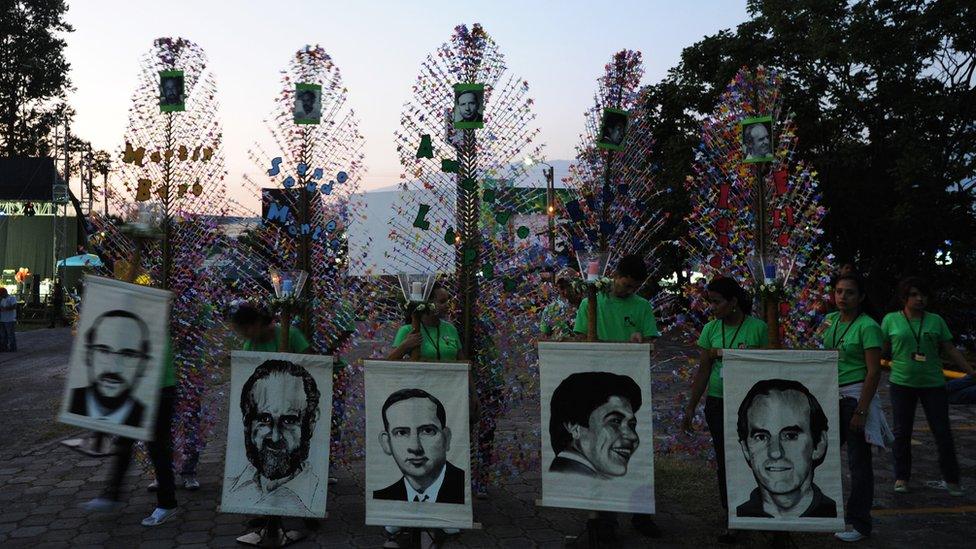Salvadorean war crimes suspect one step from extradition
- Published

Commemorations for the Jesuit priests killed in 1989 are held regularly in El Salvador
A judge in the United States has cleared the way for a suspect in the killing of six Jesuit priests in El Salvador in 1989 to be extradited to Spain to stand trial.
The judge said a lower court had been correct in ruling that Col Inocente Orlando Montano should be extradited.
Col Montano can appeal against the decision at a federal court; his lawyer has not yet said if he will do so.
The killing of the priests during El Salvador's civil war caused outrage.
Col Montano has denied any wrongdoing and has been fighting against his extradition to Spain.
The priests, five of whom were Spanish and one Salvadorean, were shot dead along with their housekeeper and her 16-year-old daughter on 16 November 1989 by an elite unit of the Salvadorean army.
Col Montano was the deputy minister of public security at the time of the killing.
Prosecutors allege he helped plot it and provided the killers with key information.
The security forces suspected the priests, who worked at the Central American University, of sympathising with left-wing rebels of the Farabundo Marti National Liberation Front (FMLN).
According to a 1993 UN Truth Commission report, more than 75,000 people were killed during the 12-year civil war, which pitted the left-wing rebels against the army and right-wing death squads.
A UN-brokered peace process brought the conflict to an end in 1992, but a 1993 amnesty law meant that civil-war era human rights violations went unpunished.
Col Montano has been living in the US since 2001 and was working in a sweet factory in the US state of Massachusetts when he was arrested on immigration charges in 2011.
He was sentenced to nearly two years for immigration fraud and perjury.
While he was in prison, a Spanish judge requested his extradition to face charges under Spain's universal jurisdiction law, which holds that some crimes are so grave that they can be tried anywhere.
- Published13 January 2017
- Published15 July 2016
- Published2 September 2015